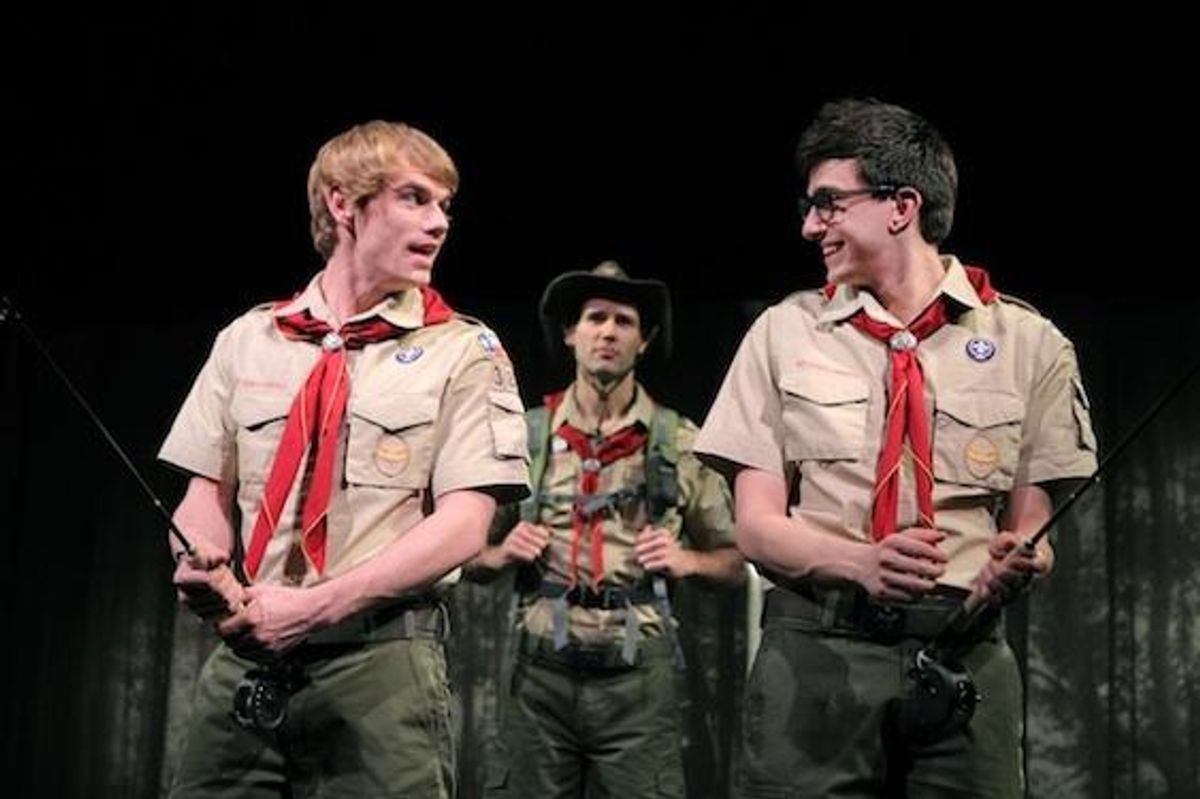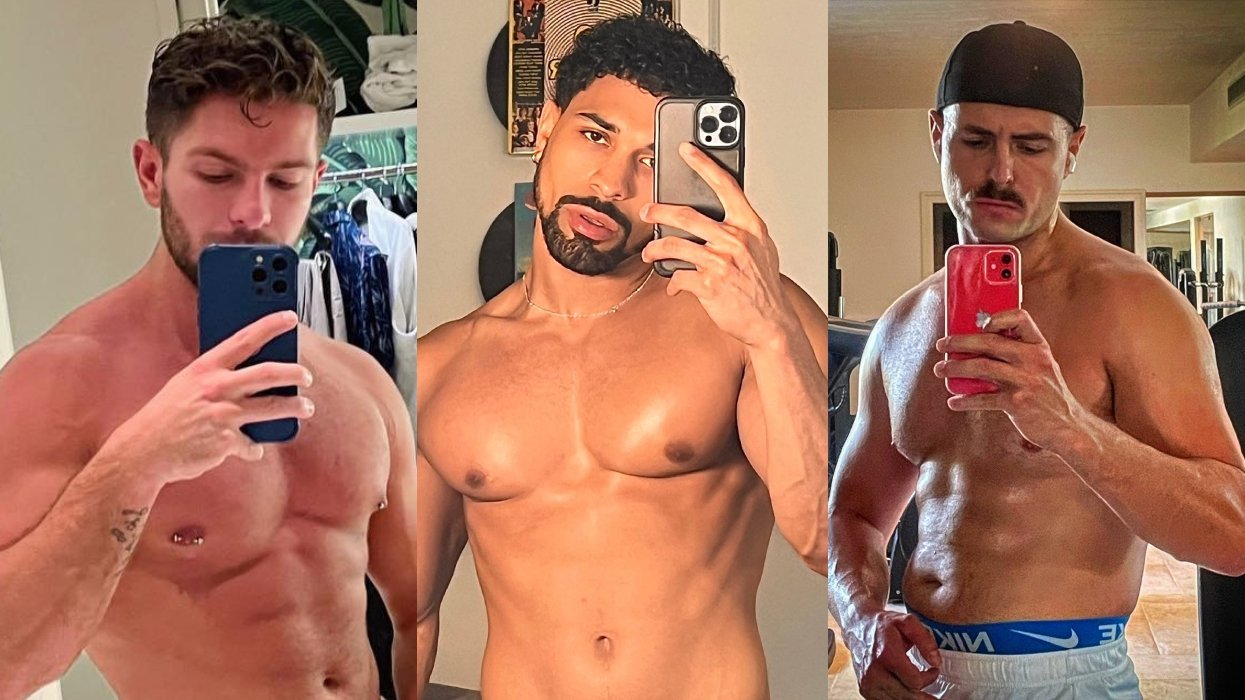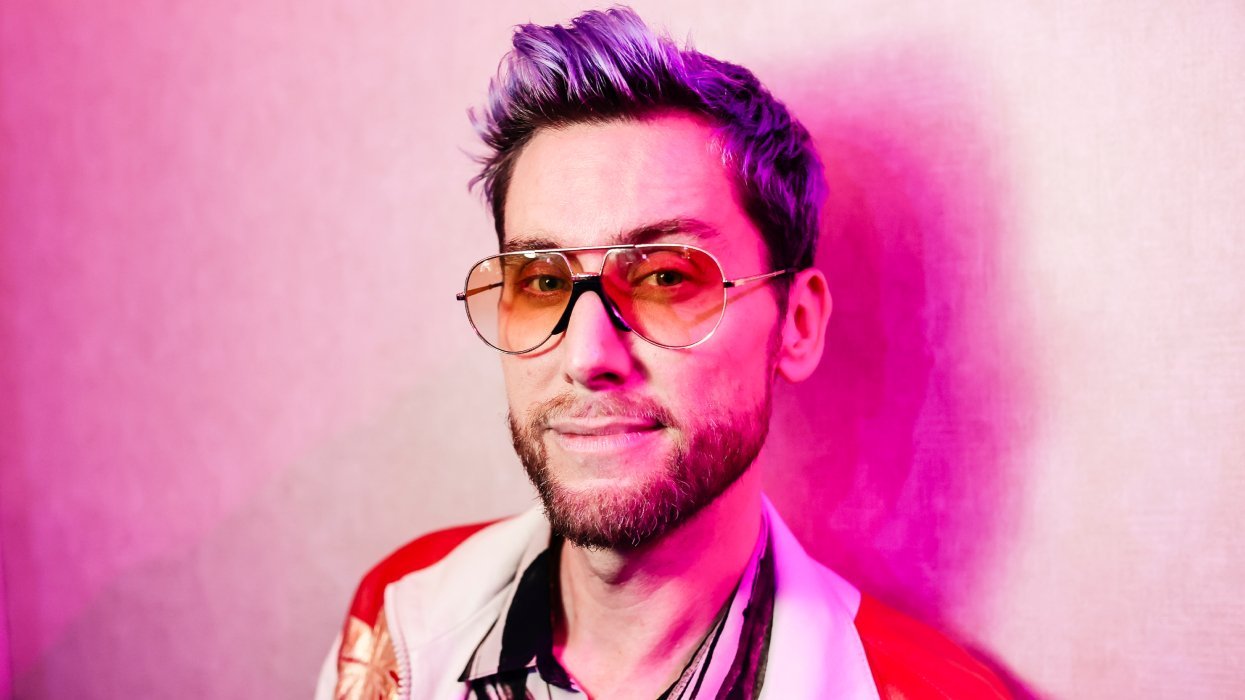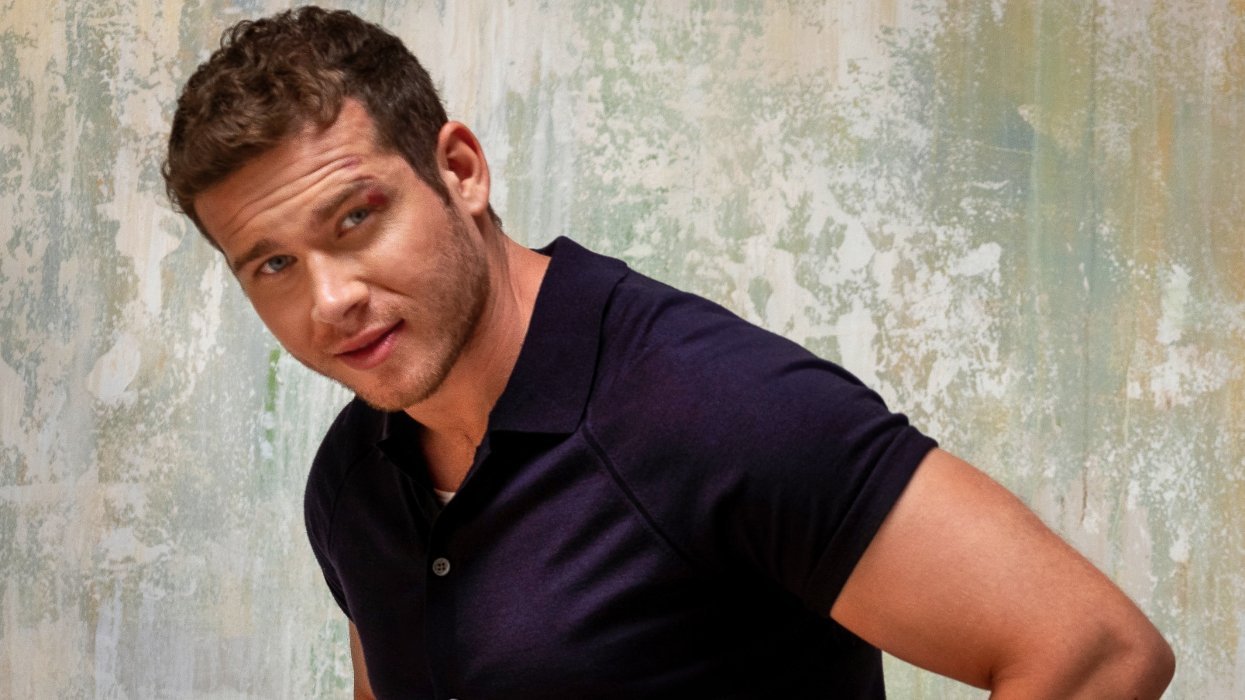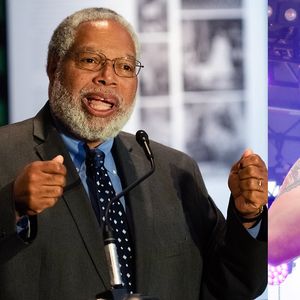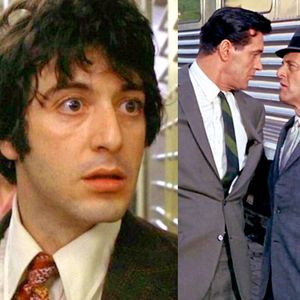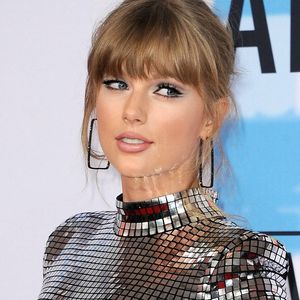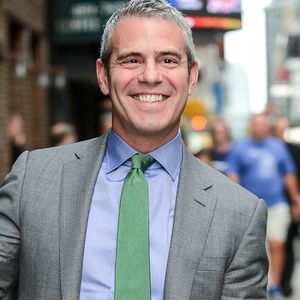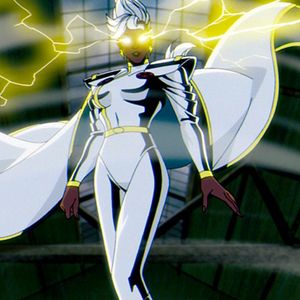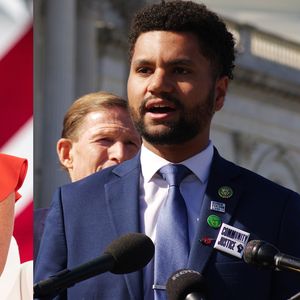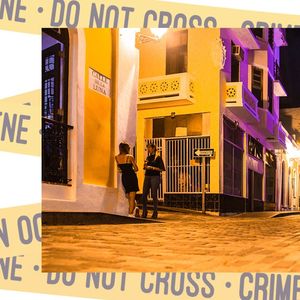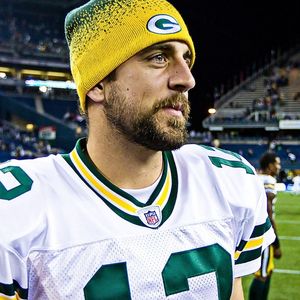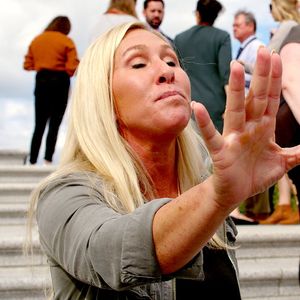Gideon Glick's big break happened while he was a teenager, playing the role of Ernst in the musical Spring Awakening, which then transferred to Broadway. While co-stars Lea Michele and Jonathan Groff have gone on to high-profile roles in TV's Glee and other Hollywood gigs, Glick left Spring Awakening midstream to play another gay character in Stephen Karam's first professional production, Speech & Debate, which premiered Off-Broadway in 2007 at Roundabout Underground's tiny stage. "I remember Lea Michele... said, 'I don't understand why you're doing this. This is what people always want, to be in a show like this,'" he said. "But you know, I want to learn and grow. I think that's the whole point of existence."
He then studied art history at NYU before his next chance at Broadway: in Julie Taymor's original version of Spider-Man: Turn Off the Dark--before it got a major revamp and his role was cut. With those apocryphal performances under his belt (and socking away those paychecks while they lasted), Glick returns as another nerdy gay high school kid in Thomas Higgins's Wild Animals You Should Know, A.K.A. the gay Boy Scout play, currently at the Lucille Lortel Theater.
Never afraid to play gay on stage, we caught up with Glick to ask about the film he just wrapped, Gods Behaving Badly, in which he plays Eros (opposite his mother, Aphrodite, played by Sharon Stone), why the Penn State controversy relates to themes in the play, and how he's negotiated the treacherous New York theater scene.
You've been in three big productions now where you've played gay characters. Going into Wild Animals, what were your feelings about that?
It doesn't worry me. I really like the character of Jacob, and I think it appeals to me if the character is good. I've liked all the characters I've played and I've wanted to portray them so it hasn't really occurred to me. If I play gay roles for the rest of my life, I'm fine with that.
That's healthy.
I think so.
What's this movie you're working on?
It's called Gods Behaving Badly. It's about Greek gods living in New York. I play Cupid, or Eros. Sharon Stone is my mom, Aphrodite. It was a wild experience because it was my first...
Feature film?
Well, I did a film when I was 16, but it wasn't as big. Film is a very different muscle from theater, and I'm much more accustomed to theater. And the cast was pretty nutty, so it was wild to be with them and so many of them were veterans and I'm not.
So when is that coming out?
I wrapped it a week before rehearsals for Animals so I don't know. I'm not sure.
So, you play a gay boy scout. Had you ever been a boy scout?
I was in the Jewish boy scouts. It's just the boy scouts, but it's run by the JCC, the Jewish Community Center. I got as far as the Webelows and then I quit. I quit everything, except for theater. That's the one thing I stuck with.
Did you hate it?
I didn't hate it. I mean I didn't stick with it. But look at the play now, I think its really cool now. I think those skills are really cool. I don't know what kind of family teaches those skills, mine didn't.
How young were you in your first play?
I was 11 in my first professional production. But I always acted, in elementary school, in high school. I did the Wizard of Oz in pre-school.
So you loved acting, couldn't focus on anything else?
No, actually I tried everything else. I just didn't stay with it. Theater was the only through line, I'd say. I started singing, originally. That's when I figured out, "Oh, I like to do this." And theater came out of that. I tried everything--soccer, karate, visual arts...
There are some confusing themes in Animals...
What drew me to the play was Jacob, the character, and the relationship between the two boys. That was the most fascinating to me. And I do think there's an element of post-gay. I don't think that element of those relationships has been explored that much, especially in an erotic way. It's not a politically correct relationship. I think people want to be careful. But I think this explored a relationship that was realistic, and that's what was so interesting to me--the push and pull. I know relationships like that.
Where both people are getting something out of it, even though it isn't what people might expect.
Yeah. I think sexuality is...I wholeheartedly believe in the Kinsey scale, you know, 1 to 6? I think it is nebulous and there are varying degrees and I think that's what this show explored, and I was attracted to that.
There's also the pedophilia aspect of the show. People don't have the language to deal with it, either you're two consensual adults or you're suddenly a child and being treated that way. What do you think about that?
That was also a theme that was really fascinating to me.
One of the questions it brought up: Why do you want to be in this group? There can't be any other reason than to prey upon boys.
And he says 'I like nature." I mean, God forbid you like nature... And he's an unassuming gay man; he doesn't have some of the stereotypical defining characteristics. But I believe in this character, I get why he would want that. I think there's something he shuts off when he's a scoutmaster but I don't think that's that bad. If he needs to compartmentalize and that's something he enjoys he should be able to do it.
You mentioned this is not necessarily a politically correct relationship--what did you mean by that?
Again, I think it's more nebulous. [People] make it black and white, you're a boy scout, you're gay, whatever. I think the relationship is kind of a poisonous relationship, especially as it escalates. In a perfect world, we don't want to see that. We want to see the gay guy and the straight guy get along. But I think what attracts people to each other is nebulous and I think people are afraid of that.
The idea that gay guys can be attracted to straight guys even if it's destructive in some way?
Or that straight guys can be attracted to gay guys! I mean, that's what I was more fascinated with. You don't take your clothes off for somebody if you're not somewhat attracted to the idea. And I found Matthew's sexuality to be very interesting and how it relates to Jacob. And I think that's not politically correct, whatever the phrase "politically correct" brings up.
So, you were Spring Awakening first. How had that changed the trajectory of your career and affected that roles you've been given or the roles you haven't been given?
It was my first big thing, it was my introduction to New York, because I graduated high school doing it Off-Broadway and then I was 18 doing it on Broadway. So that was my introduction to the larger theater world and the mainstream public, whoever paid attention. That was the biggest thing I'd done so far. I think it opened a lot of doors. Doors that I was ready, or not as ready to go in. I mean, I was not as polished then as I believe I am now. So that was difficult, being seen for things that I didn't really have the tools to be seen for.
Do you think it went to your head?
I don't think it went to my head, I think I was very self-conscious around that time, actually. I think I could have cherished it more, but I think I was ready to leave very early. I think I was the first to go. I could have enjoyed it more, actually.
How was Off-Broadway different?
Oh, it was the best, the best. It was like summer camp. I got to leave high school, which I really didn't want to be in anymore, and I was meeting all these interesting, talented people--attractive, too. And we were all together in the dressing room space, Off-Broadway at the Atlantic. They've renovated now, but it was this humongous room, the curtains on one side, the bathroom on the other side, and I love that. I like that atmosphere a lot. I don't necessarily need to be by myself in a dressing room. That's what I like about this show: We're all in one great big line. And it's great because I'll have this collective energy before I go on stage, which I think is important to have.
Has it been strange to see you co-stars go on to fame and fortune and TV and other things?
I think it's exiting...I mean it's strange to see someone you knew and all of a sudden they're on billboards everywhere. So yes in a way it is strange. But it's awesome I think.
Do you stay in touch?
I think in that show, we're all kind of a family. And you see your family, you don't see your family, you love your family no matter what, but you know what I'm saying.
And I think we're all the same age, so we all came up with it, we all learned a great deal together. [Jonathan] Groff came to see the play last night and it was very nice to see him. I lived with Johnny Wright, who played Hanschen, the boy I did my scene with, for a while. But he's moved away.
So right after you left the show to Speech and Debate...
I did leave the show to do Speech and Debate.
A lot of people thought it was crazy.
They did. I remember Lea Michele, who played Wendla, she said, "I don't understand why you're doing this. This is what people always want, to be in a show like this." But you know, I want to learn and grow. I think that's the whole point of existence.
Instead of doing the same thing every night.
Yeah. And in Speech and Debate I learned a lot. And I started college during Speech and Debate. I went to NYU for art history for three years, and I left to do Spider-Man.
So, do you want to talk about the Spider-Man experience?
[Laughs] Do you have questions about it?
I saw it in the later version.
Oh, after we were cut? The Geeks?
Yeah. So, tell me what it was like!
Well, it was wild! I got really lucky, I got to work with Julie Taymor and I got to be part of something that doesn't exist anymore. Nobody will play those parts anymore.
And for someone interested in visual art, you get the artsy part of it as well.
Julie's a genius. My favorite part of it was being in a room with her, just shooting the shit. It was like a master class. I consider myself very fortunate. And then getting out of it, after they fired Julie--I wanted to be in Julie's version. However people perceived the show, it was still unlike anything else. I was very happy to be part of that.
I thought perhaps she was trying to take a very commercial product and try to make it uncommercial in a commercial setting.
She tried to make it an operatic piece. You didn't see the whole Arachne journey, which was this... bizarre meta-journey, but I don't think people wanted to see that, or didn't understand what it was doing in Spider-Man. That's what I thought was so kooky and awesome.
This sounds like a part of Gideon that people aren't aware of--you write, you're into art; you're also an actor. It sounds like your vocation is going to be actor, but you're looking for other paths or creative outlets?
I don't think it's necessarily now. I'm not always acting, and I need to be stimulated somehow, and so I have to self-stimulate.
Do you want me to quote you that way?
I wasn't thinking about that dirty innuendo. But, I write poetry. I wrote a short film that I was hoping after this spring I could start to do, because I've saved up a lot of money from the movie and Spider-Man. Spider-Man paid me until November 6th, so...
So you want to produce the movie? Or create it, or direct it, or...?
I'm not quite sure. I haven't looked at the script in a couple of months, so I'd like to look back at it. It's about a boy and his imaginary friend. And it mirrors this show a little because he falls in love with his imaginary friend, and his imaginary friend freaks out and disappears. And coming to terms with that. He's a gay boy, about 11-ish, with this straight friend he's imagining.
So, do you think someone at 11 can know that much about themselves?
Oh yeah. I knew I was gay in second grade. I mean, I didn't know what it was--it was like this character. I identified that I liked boys but I didn't know what that meant, that's just what it was. I came out in the seventh grade, so...
Seventh grade. That's 13?
Yeah.
It's hard at 13. Your parents want proof, and you don't always have proof.
Right. For me it was, I came out to watch Queer as Folk. I think I told this story in an interview already, so it won't be that interesting, but my mom's a professor at Penn and her best friend/mentor/colleague, his name is Larry Gross. He's not at University of Penn anymore but he's a scholar in sexuality in media, now he's a dean at USC for the school of journalism. Or communications. But he had videotaped every episode of Queer As Folk.
The British one?
The American and the British one, yes. But the American one was coming on and he was videotaping as it was going. We didn't have Showtime and I said, 'Oh there's a show I really want to watch,' and she said she was very confused as to why I wanted to watch it. And she watched the first episode with me, and it was pretty intense. As a kid I watched thinking, 'What a life!' I watched them over and over again. I lived vicariously through it. Because I had no exposure to anything, She was like 'Why, why, why?' and I said 'You have to let me see it, because I'm gay.' So there was at least something tangible about it. If she knew I wanted to watch that, there's some proof, I guess.
So what are your reactions to stuff at Penn State?
I think it's terrible! I think what's going on with the boys who were molested is terrible, but also the response at Penn State has made me quite sad.
Because they've been defending the coach....
It's such a weird scandal. I mean, it's fascinating.
It's like the priest scandal taken to the next level.
And Americanized. Not to be salacious, but I am so fascinated with hypocrisy and sex scandals and politics and religion and so forth. It's always... titillating is not the right word. It's always fascinated me. I think that the fact that this play is going on while the Penn State scandal is happening is quite interesting.
